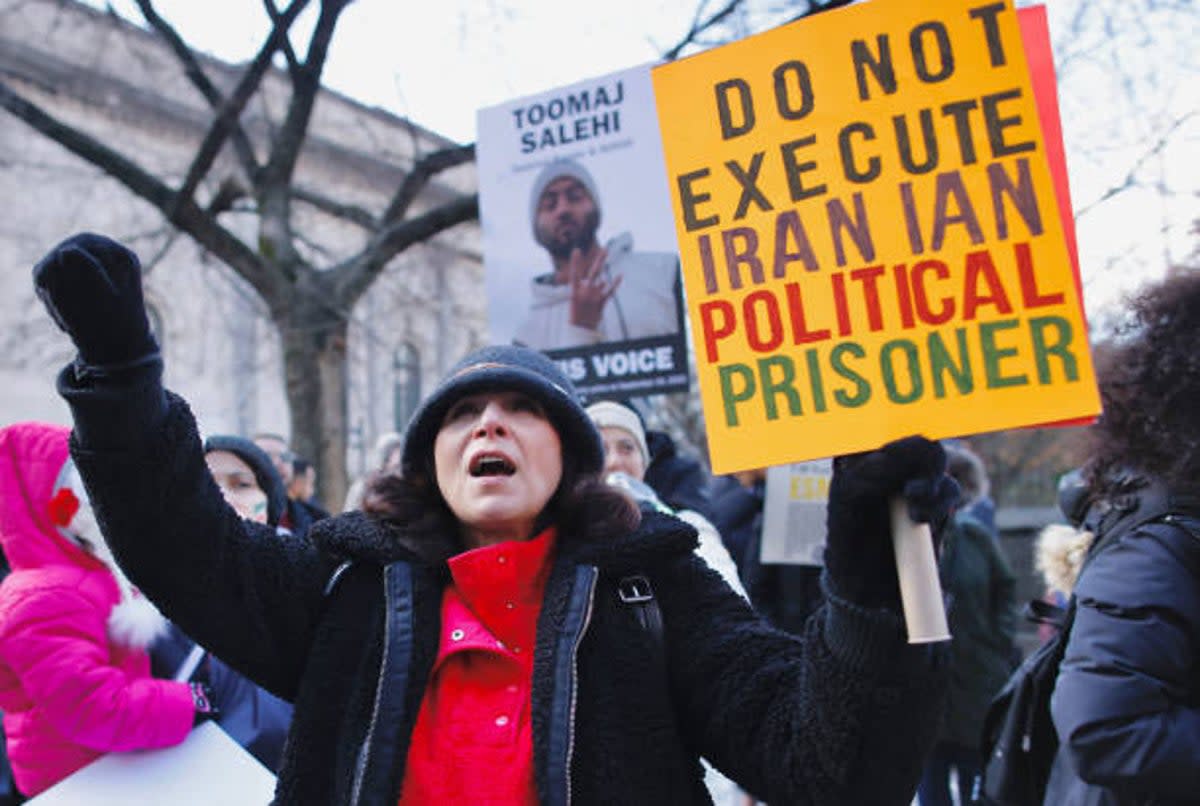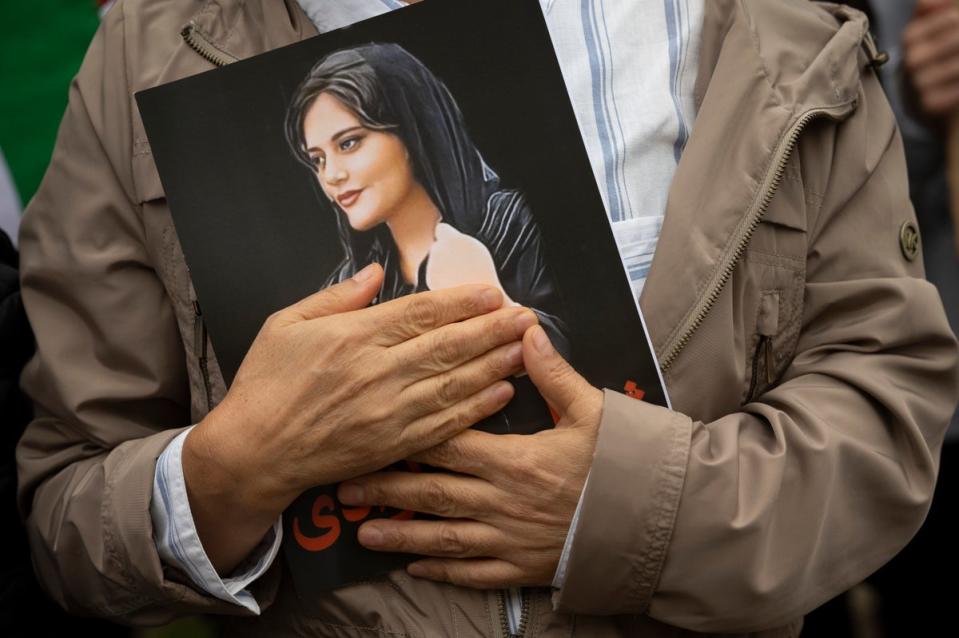Iran exploiting focus on Gaza to carry out ‘unprecedented’ number of executions, human rights groups say

Iran is exploiting the global focus on the conflict in Gaza as a pretext to carry out an “unprecedented” number of executions since the beginning of the Israel-Hamas conflict on 7 October, human rights groups have alleged.
The Iranian government has executed more than 700 in 2023 alone, including 176 people since Israel launched a military offensive on Gaza after the Hamas attack, Iran Human Rights (IHR) said in a report.
Raising alarm over the escalating risk faced by political prisoners and protesters in Iran, IHR said executions have spiked since the war in Gaza as 176 have been killed in just 54 days.
Two other human rights organisations, Norway-based organisation Hengaw and Human Rights Activists in Iran (HRA) also confirmed a significant rise in executions in Iran.
The IHR called on the Western countries to “break their silence” on the executions as it is being seen as a green light by Tehran to continue political “repression”.
“The international community and especially European countries, must break their silence on the arbitrary execution of more than three people per day by the Islamic Republic,” IHR director Mahmood Amiry Moghaddam said.
IHR said a record of 707 executions in 2023 alone, including of children and women, was “unprecedented” in the last eight years.
Human rights advocates allege that the Iranian government is exploiting the global focus on the conflict in Gaza as a pretext to retaliate against dissidents, executing individuals without affording them due judicial process.

“Since the start of the war, there has been little international focus on the human rights situation in Iran, and there has been no substantial response to the significant increase in executions,” he added, according to the Guardian.
Among those executed in the last two months include a child, 17-year-old Hamidreza Azari, who was accused of murder after he was made to give a forced confession, IHR said. The UN called his execution “deplorable”.
Iran also executed Milad Zohrevand, 22, who was the eighth protester to be executed linked to Women, Life, Freedom movement for participating in the anti-government protests after Mehsa Amini’s death last year.
The UN condemned Zohrevand’s execution and said that “available information indicates that his trial lacked the basic requirements for due process under international human rights law”.
The agency said that it was troubled by the reports that his parents were also arrested following his execution.
Tehran also executed Majid Kazemi, Saleh Mirhashemi and Saeed Yaghoubi, the three men who took part in the anti-government protests, after declaring them guilty of waging “war against god”.
Human rights groups accused the police of torturing the three men to force them to give confessions.
The Iranian government has not yet responded to the human rights groups’ reports of an increase in executions since the 7 October Hamas attack.
In October this year, the UN said Iran carried out executions at an “alarming rate” and said 419 people have been killed between January and July this year. It marked a rise of 30 per cent in the same period in 2022.
One political activist inside Iran said Tehran is “using the silence of the international community to avenge our calls for freedom”.
“We face increasing restrictions due to the dozens of morality police on the streets, and we face harassment or arrests if we even share the news of executions or killings on social media,” the activist said.

 Yahoo Lifestyle
Yahoo Lifestyle 
